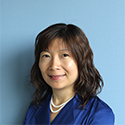Optimizing and Qualifying Reporter Gene Bioassays for Immune Checkpoint Receptors
- Discuss the development of a series of MoA-based reporter gene bioassays for therapeutic antibodies targeting immune inhibitory receptors, immune co-stimulatory receptors, or combination bioassays targeting two immune checkpoint receptors
- Show case studies on assay design and development, assay optimization with Thaw-and-Use cells, and assay qualification according to ICH guidelines
Summary
The use of therapeutic antibodies targeting immune checkpoints for the treatment of cancers is gaining momentum and has already shown promising clinical results. However, the functional screening and development of drug candidates often relies on the use of human primary immune cells which use methods that are tedious and highly variable, and are therefore technically challenging to implement.
Reporter gene assays offer the advantage to be robust, extremely fast, and easy to implement and transfer between global sites. They are widely adopted in controlled drug development environment. In this webinar, we will discuss the development of a series of MoA-based reporter gene bioassays for therapeutic antibodies targeting immune inhibitory receptors (PD-1, CTLA-4, TIGIT, LAG3), immune co-stimulatory receptors (4-1BB, OX40, GITR, CD40, HVEM, CD27), or combination bioassays targeting two immune checkpoint receptors (PD-1+TIGIT, PD-1+CTLA4, PD-1+LAG3). We will show case studies on assay design and development, assay optimization with Thaw-and-Use cells, and assay qualification according to ICH guidelines (repeatability, intermediate precision, specificity and linearity). Please join us to learn more about how reporter gene bioassays can facilitate the antibody screening and development in immunotherapy program.
Speaker

Zhijie Jey Cheng, PhD
Senior Research Scientist
Jey Cheng is a R&D group leader in bioassay development at Promega Corporation. Dr. Cheng’s group focuses on developing MOA-based reporter gene bioassays using engineered cell lines to quantitatively measure the potency of biologic drugs developed for cancer immunotherapy. Prior to joining Promega, Jey was an assistant professor of Biochemistry & Molecular Biology at Mayo Clinic College of Medicine, where she also completed postdoctoral Kendall-Mayo Fellowship in Biochemistry. She received her PhD in Cell Biology from Shanghai Institute of Cell Biology through a Joint PhD program by German Max-Planck Society and Chinese Academy of Sciences.